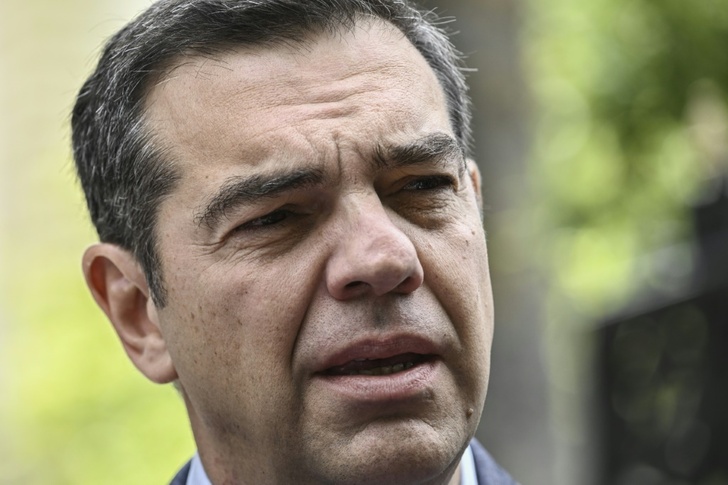Greece's leftist former prime minister Alexis Tsipras, who nearly crashed his country out of the eurozone in 2015, has been left reeling by electoral defeat, which he conceded Tuesday had been a "painful shock".
The left suffered a stunning defeat to the incumbent conservatives on Sunday, leaving Tsipras stony-faced before the media on Tuesday after being forced to forego any hopes of joining a coalition government.
"The result of the elections is a shock for us... unexpectedly painful", he said outside the presidency, where he declined a power-sharing mandate.
With the conservative party of Prime Minister Kyriakos Mitsotakis grabbing 146 seats to 71 seats for Tsipras' Syriza party after its vote share imploded, notably among young voters, any coalition talk was futile.
It was Tsipras's fourth defeat to Mitsotakis at local, national and European elections since 2019 and by far the heaviest.
With a hung parliament emerging from Sunday's ballot, Mitsotakis is pushing for a new, decisive election as early as June 25.
President Katerina Sakellaropoulou still has to go through the motions of inviting parties to form a government, but after that a senior judge will be named interim prime minister and call for new elections.
The fresh election will be governed by different rules that grant the winner up to 50 bonus seats in parliament, facilitating Mitsotakis's efforts to form a single-party government.
New Democracy thumped Syriza by 20 points -- 40.79 percent to 20.07 -- and with the socialist Pasok-Kinal party also unexpectedly beating the leftists in six regional constituencies, doubts are swirling over Tsipras' political future.
For now, the 48-year-old engineer has vowed to lead his party into the next battle.
- Not giving up -
"I am here. I will not give up," he said on Sunday. "Syriza is here and will remain so".
On Monday, he said checks on Mitsotakis's power were imperative.
An "all-powerful" government would be "bad for democracy and for the country", Tsipras said.
Tsipras is a known orator and can whip up a crowd, but analysts said he focused too much on attacking the government without articulating a persuasive alternative to Mitsotakis, who put Greece on a path of growth, cut taxes and increased wages.
"Syriza conducted a problematic campaign," political analyst Panagiotis Koustenis told state TV ERT.
"It did not appear before the electorate as a competent alternative to New Democracy," he said.
Despite a campaign aimed at young voters, Syriza won only 28.8 percent of Greeks aged 17-24, against 31.5 percent for New Democracy, the exit poll showed.

Gerasimos Moschonas, professor of comparative politics at Panteion University, says Syriza brought together "a coalition of dissatisfied people: dissatisfied with their personal finances, dissatisfied with the institutions".
"The dissatisfied do not give a majority", he said.
Greeks have never quite forgiven Tsipras for his resounding about-face in 2015 when he was seen to betray an anti-austerity referendum called by his own government.
In July 2015, he backed down after a six-month showdown with European creditors and adopted drastic austerity measures whose devastating effects are still felt today.
The finance minister at Tsipras' side during the disastrous negotiations, maverick economist Yanis Varoufakis, was another casualty of Sunday's vote.
His MeRa25 party crashed out of parliament after failing to garner the minimum three percent of the vote required.
Varoufakis, 62, blamed his defeat on the "Erdoganisation and Orbanisation" of Greece -- comparing Mitsotakis on the rule of law and press freedom to the authoritarian policies of Turkish President Recep Tayyip Erdogan and Hungarian leader Viktor Orban.
bur-yap/jph/cw/jm
© Agence France-Presse
Your content is great. However, if any of the content contained herein violates any rights of yours, including those of copyright, please contact us immediately by e-mail at media[@]kissrpr.com.
Source: Story.KISSPR.com

